Mariupol State University Joins T4EU with the Efforts of VMU
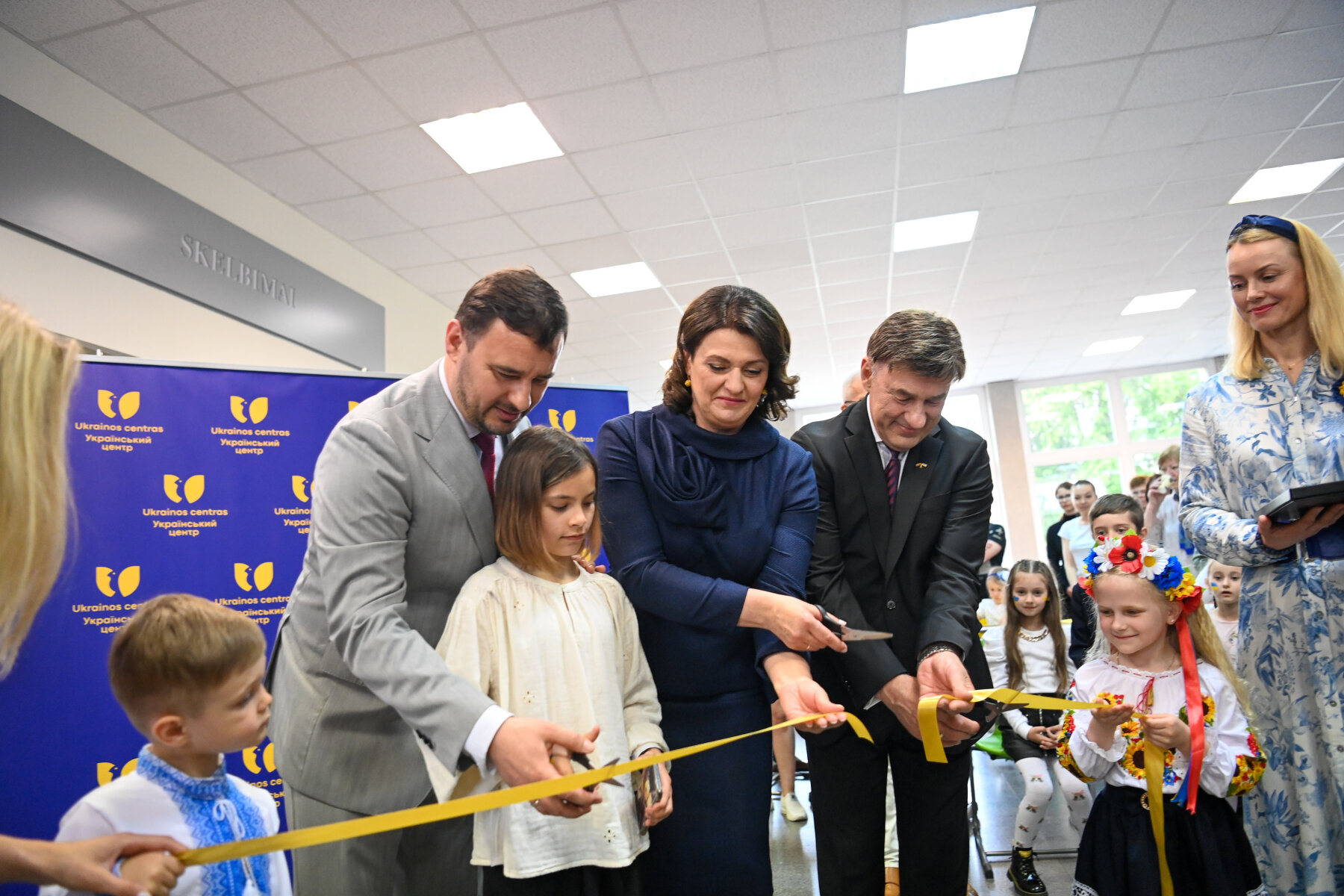
How has the cooperation between Vytautas Magnus University (VMU) and Ukrainian universities changed with the outbreak of war? What support does the academic community of the demolished Mariupol State University (MSU) receive from its VMU colleagues? And what ambitious goals are being pursued through the Centre of Ukraine established at VMU Education Academy?
We discuss this with Assoc. Prof. Vilma Bijeikienė, VMU Vice-Rector for Communication, Prof. Gintautas Mažeikis, and Kateryna Horiunova, a Ukrainian, Senior Specialist at the Center for International Education of MSU, and Transform4Europe project coordinator at VMU.
Collaborative efforts before the outbreak of war
Assoc. Prof. Vilma Bijeikienė, VMU Vice-Rector for Communication, says that VMU’s relations with Ukrainian universities were very intensive and friendly even before the war:
“Before the war, we had about 30 agreements with Ukrainian universities and carried out as many as 5 development cooperation projects focused on Ukrainian higher education. These included the development of teacher competencies, the creation and improvement of study programmes, and gender studies projects.”
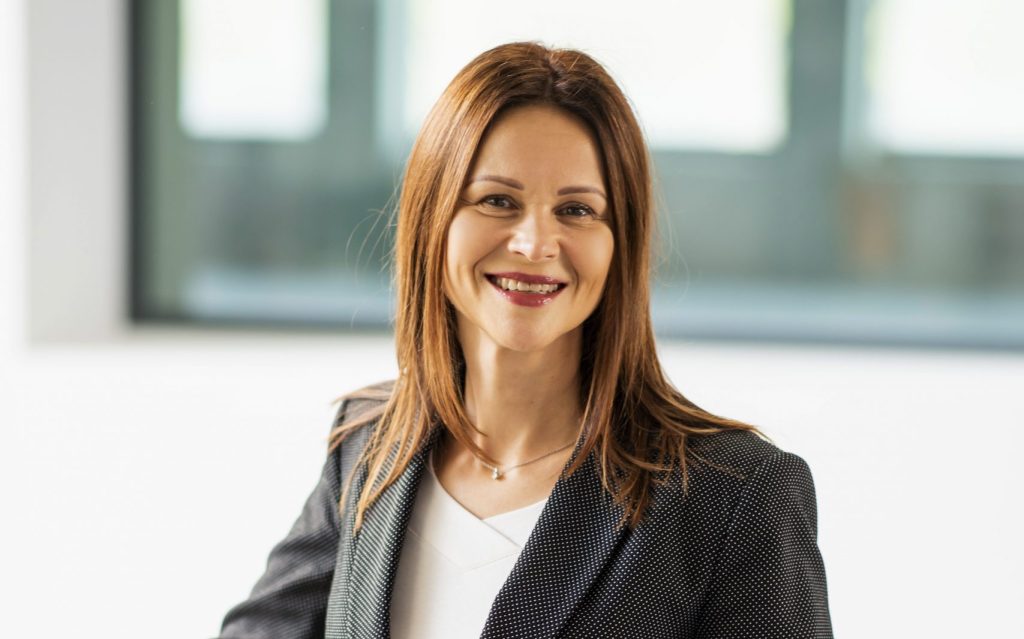
Assoc. Prof. Dr. Vilma Bijeikienė
The Vice-Rector says that even before February of 2022, there were around 80 students from Ukraine studying at VMU, but even more arrived after the outbreak of the war: “During the first months of the war, we admitted about 70 students, and to help them quickly integrate into the study process, we offered Lithuanian and English language courses. By autumn, the number of Ukrainian students at the university had risen to three hundred.”
From humanitarian project to centre for cultural diplomacy
Assoc. Prof. Bijeikienė says that it was only natural to establish the Centre of Ukraine at VMU: “The history of the Centre of Ukraine began with the initiative of the First Ladies of Lithuania and Ukraine, Diana Nausėdienė and Olena Zelenska, who sought to create a centre for Ukrainians fleeing from the war. We gladly joined this initiative, and VMU, together with the Office of the President of the Republic of Lithuania and the Embassy of Ukraine, became the co-founder of this centre. Algirdas Kumža, a signatory of the Act of Independence and former Lithuanian Ambassador to Ukraine, was appointed as the head of the centre.”

Algirdas Kumža, Head of the VMU Centre of Ukraine
The centre initiated its work by providing humanitarian aid to Ukrainians fleeing the war. Currently, it is expanding its activities, and the academic community of VMU is actively getting involved. For instance, VMU language teaching professionals provide Lithuanian and English language courses. During the initial months of the war, the courses were also taught by students and volunteers. Additionally, two choirs – women’s and children’s – have been formed, and their rehearsals take place at the Centre of Ukraine.
Assoc. Prof. Bijeikienė says that psychological support is being provided with great intensity to this day: “The demand is immense – today, the centre records over 24,000 visits. In the summer, there are summer camps for Ukrainian children here, and Ukrainian students volunteer as mentors.”
Prof. Mažeikis notes that this small-scale humanitarian project, launched as it coincided with Lithuania’s political and VMU’s humanitarian interests, is gradually evolving into a significant centre for cultural diplomacy.
“This project has become so politically significant that it was mentioned at the NATO Summit in Vilnius and presented to the partners of the Heads of State,” he notes.
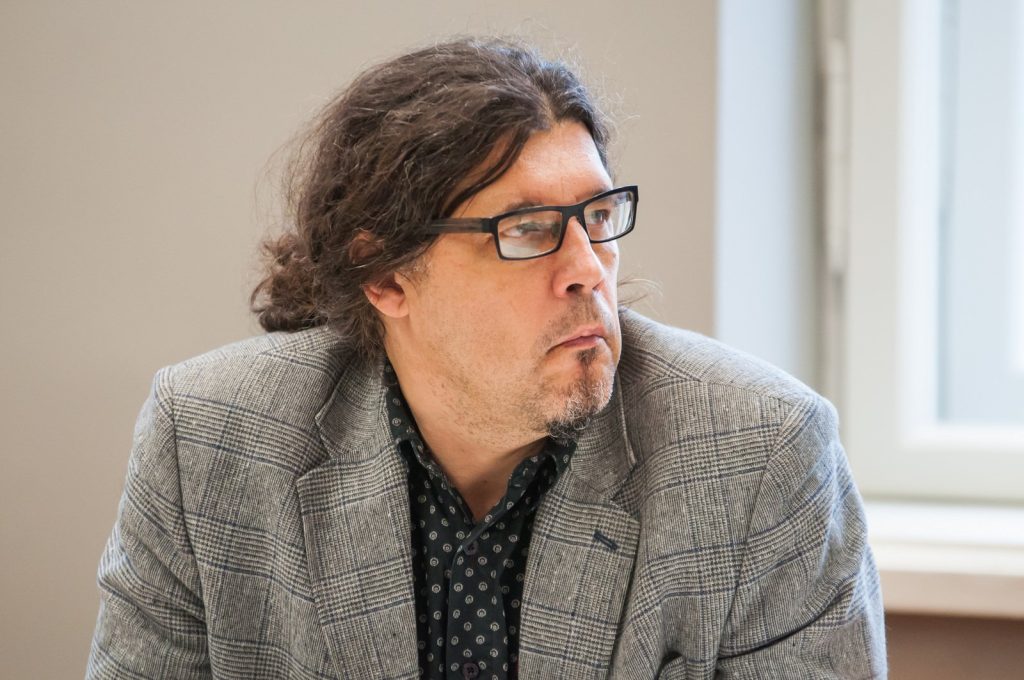
Prof. Dr. Gintautas Mažeikis
Top-level attention for the Centre of Ukraine
Confirming her colleague’s words, Assoc. Prof. Bijeikienė lists even more activities of the Centre of Ukraine:
“In the spring we organised a youth think tank, where university and gymnasium students – both Lithuanians and Ukrainians – could participate in joint discussions with prominent personalities, politicians, diplomats, and ambassadors. One of the most memorable events was a discussion between the youth and the patron of the Centre, the First Lady of Lithuania Diana Nausėdienė, the Speaker of the Verkhovna Rada of Ukraine Ruslan Stefanushchuk, and the Speaker of the Seimas of the Republic of Lithuania Viktorija Čmilytė-Nielsen.”
According to the VMU Vice-Rector, the anniversary of the war was also significantly commemorated: “We organised a conference to address Ukraine’s pressing issues. It was attended by Lithuanian President Gitanas Nausėda, as well as Ukrainian President Volodymyr Zelensky, who delivered a remote presentation.
This was followed by a discussion with the participation of the Ministers of Justice of Lithuania and Ukraine, the Vice-Ministers of Energy of both countries, VMU professors Dalia Leinartė, Dainius Žalimas, Jonas Ruškus, and others. We delved into crucial topics such as human rights issues and energy security.”
While the Centre of Ukraine was established to address day-to-day issues and bring the Ukrainian community together, in the future, VMU envisions utilising the Centre to assist Ukraine in its Euro-integration processes and foster its academic potential.
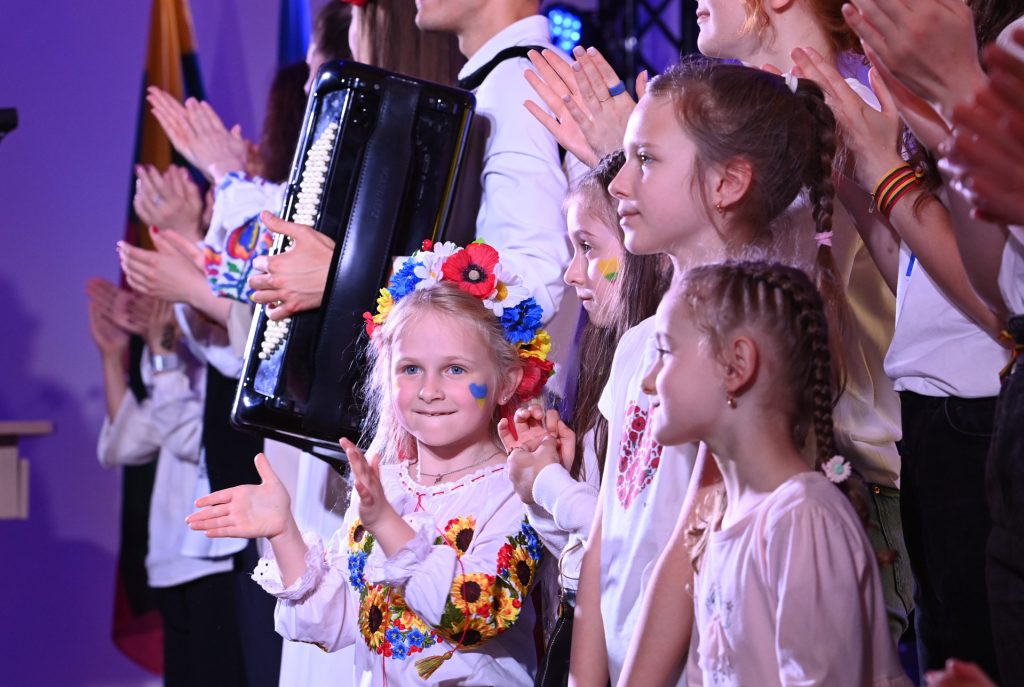
“In the autumn, the Centre will host a conference on education reform, with the participation of VMU professors, international experts, and colleagues from Ukraine. We will share our experiences on how we can work together in higher education to overcome the challenges posed by the war,” she discusses future plans.
Zelensky granted the title of VMU Honorary Doctor
Assoc. Prof. Bijeikienė says that another future vision is pursued: to turn the Centre of Ukraine into a centre for cultural diplomacy: “The Centre of Ukraine has been invited to become a member of the European Union National Institutes for Culture (EUNIC) network. This opens up more opportunities to develop cultural diplomacy activities. After all, Ukraine will have to rebuild not only its academic but also its cultural potential after the war.”
The VMU Vice-Rector says that VMU has invited the President of Ukraine Volodymyr Zelensky to become a member of the VMU community by granting him the title of Honorary Doctor: “The VMU Senate has given its approval and we are delighted that the President has accepted the invitation. We look forward to his visit to Lithuania and the opportunity to visit VMU and accept the regalia of Honorary Doctor.”
Mariupol State University: scattered but not destroyed
Prof. Mažeikis says that the Centre of Ukraine is not the only platform for VMU’s cooperation with Ukraine.
“Just like before the war, VMU cooperates with many Ukrainian universities. Some of them are facing an incredibly difficult situation. I would like to highlight Mariupol State University, which was demolished and has become a distance-learning university. Our partner, Donetsk University, has relocated from this city and is now based in the city of Vinnytsia.
We are also cooperating with Kharkiv University, which was also bombed and demolished during the Russian attacks. Some professors from these universities lost their lives, others fled the country, and some arrived in Lithuania. We cooperate with several of them remotely, developing various activities and projects,” says Prof. Mažeikis discussing the ongoing cooperation with the Ukrainian academic community.
Assoc. Prof. Bijeikienė adds: “When Mariupol State University went into exile, we signed a cooperation agreement with them, and our mediation resulted in this university becoming an associate partner in the European University alliance Transform4Europe.
We are also establishing an informational Mariupol State University Centre, which has been allocated premises in Kyiv, but the teachers and students are scattered all over the world, so most of the studies are conducted remotely.”
The future of Mariupol State University in Europe
Ukrainian Kateryna Horiunova, a Senior Specialist at the Center for International Education of the demolished Mariupol State University and Transform4Europe project coordinator at VMU, shares that life before 24 February 2022 now seems like a distant memory: “As I remember it now, on the eve of the military invasion, I and the students of the Mariupol State University were invited to a live television broadcast. Young people shared their plans, dreams, and visions for the future… And just a few hours later, a full-scale war broke out.”
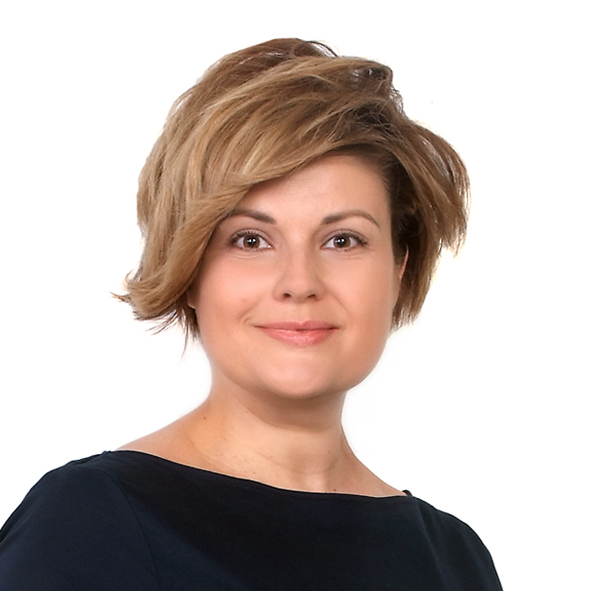
Kateryna Horiunova
Horiunova shares that she moved to Kaunas in February 2023 after receiving an invitation to join the Transform4Europe alliance team to coordinate cooperation with Mariupol State University and other Ukrainian higher education institutions.
“VMU was one of the first to extend help to Mariupol State University, which, with immense efforts of the entire academic community, especially its rector Prof. Mykola Trofymenko, was relocated to Kyiv. And, on the initiative of VMU Prof. Ineta Dabašinskienė, in May 2022, our university joined the European University alliance Transform4Europe,” she says, recalling the circumstances of her arrival in Lithuania.
Horiunova is delighted that, despite its destruction, the university is now presented with international opportunities: “Membership in the alliance opens up access to interdisciplinary and international educational programmes, innovative teaching and learning environments, new mobility models, close cooperation between universities, businesses, and other key stakeholders from the regions, language learning, and international research.”
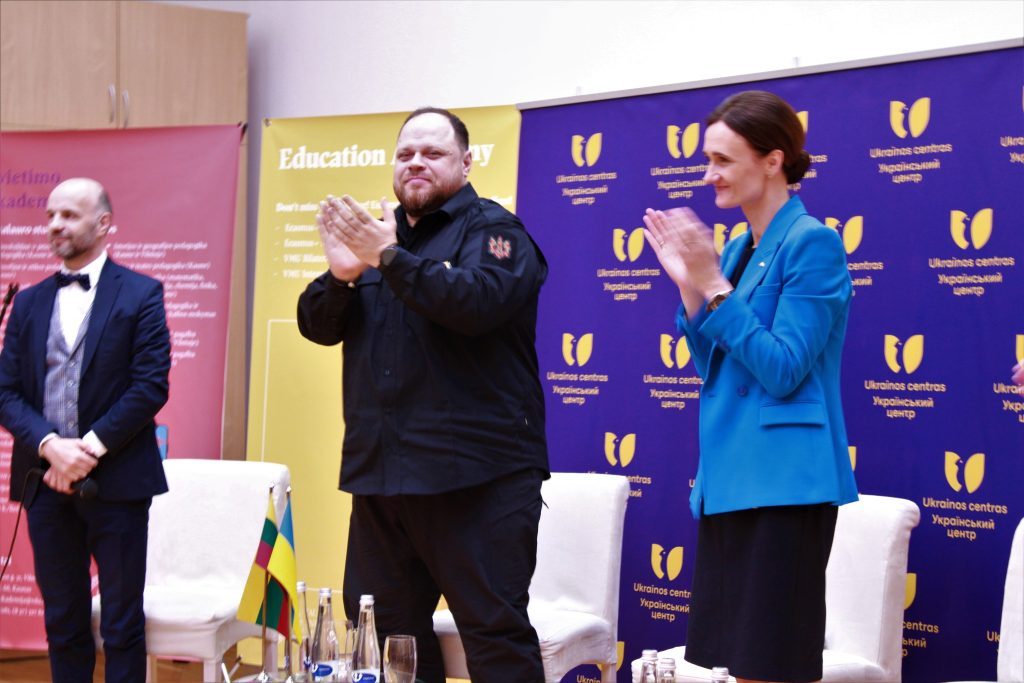
Praise for the VMU team
Looking to the future, Horiunova, like all Ukrainians, expresses having just one wish – to celebrate victory in the war as soon as possible. In her day-to-day activities, much like all staff members of Mariupol State University, she is doing her utmost to strengthen the university, even under such conditions.
“It will take a great deal of effort, skill, and professionalism to rebuild the university in our hometown Mariupol. It is the support of international partners that makes these ambitious prospects seem achievable,” she says.
Horiunova herself takes every effort to be as helpful as possible to strengthen the international relations of her native university and ensure its effective involvement in the activities of the Transform4Europe alliance.
030901131_7960500565628498237_n-1024x683.jpg" alt="" width="640" height="427" />
“We are currently working on establishing the Mariupol State University Centre at VMU. This is an ambitious and important project, which is set to serve as a platform for cooperation between the two universities,” she shares future plans.
And these plans encompass a wide range of activities: developing educational, scientific, and cultural connections, supporting exchanges of teachers, researchers, and administrative staff, promoting the sharing of various teaching materials, conducting student exchanges through the Erasmus+ programme, as well as encouraging and supporting joint events related to Lithuanian studies. They also include promoting Mariupol State University’s educational programmes and research prospects to Ukrainian youth in Lithuania, facilitating the smooth integration of Ukrainian refugees into local communities, and, of course, increasing the representation of Mariupol’s academic community through active engagement in the activities and initiatives of the Transform4Europe alliance.
Horiunova says that, despite the challenges she has faced, she feels happy: “I am privileged to work with the wonderful VMU team. Both Kaunas and my new colleagues are very hospitable. I extend my gratitude to Lithuania. It’s a wonderful country, and at every step, you can feel the tremendous support for Ukraine and Ukrainians. Such understanding and care can only come from a nation that knows what it means to fight for Independence and understands the true price of freedom.”
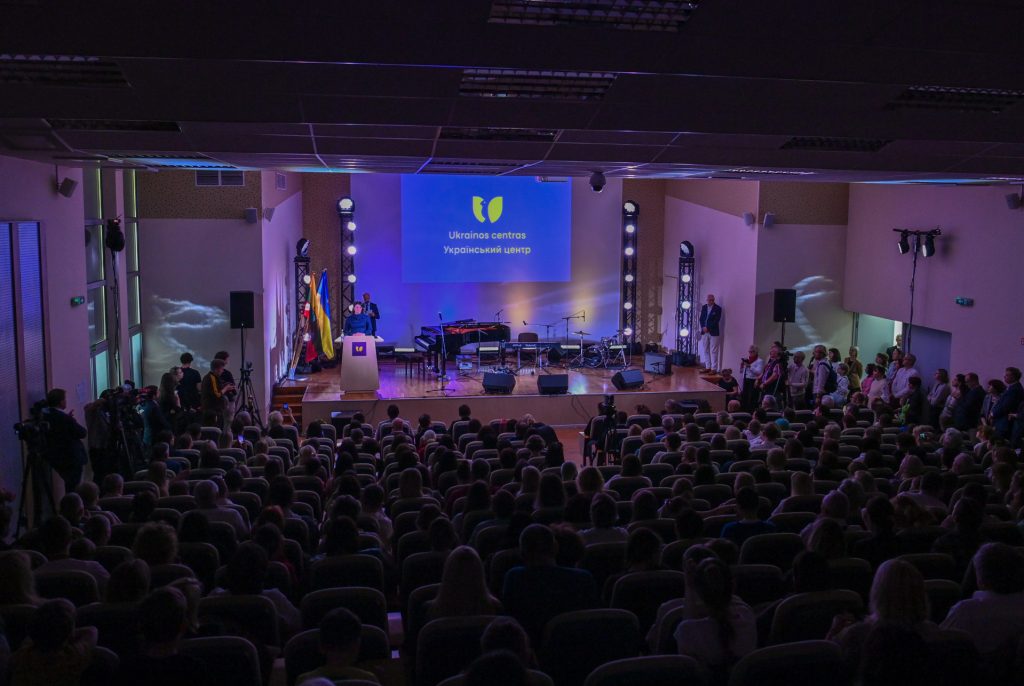
She also mentions that she is intensively learning Lithuanian: “I dream of expressing my gratitude to my Lithuanian colleagues for their hospitality, warmth, care, and support in their native language. I admire the Lithuanian language teachers at VMU who teach foreigners. They are highly competent!
I am currently attending the VMU Lithuanian Language and Culture Summer Course. The course is designed to enable students from all over the world to learn Lithuanian while immersing themselves in the Lithuanian culture, history, traditions, and even national cuisine. Moreover, learners are provided with convenient conditions for remote learning. So for me, learning Lithuanian is a real pleasure.”
Article by news portal Delfi.lt












